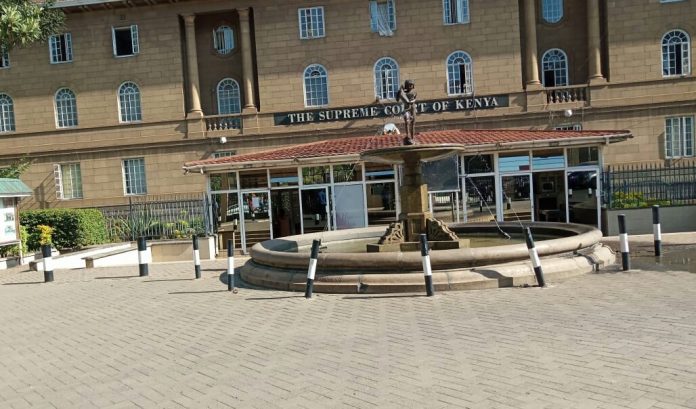Chief Justice Martha Koome has opposed a case challenging her gazetted directive gagging lawyers and litigants from commenting on presidential election petition until the determination of the matter.
Through an affidavit sworn by the Supreme Court Registrar Bernard Kasavuli, the CJ said that advocates must avoid commentary that offends their duty as officers of the court.
She added that the rules are only meant to ensure both the dignity and independence of the court is maintained.
“I am aware advocates play an indispensable role in the administration of justice and their duty to the court is paramount,” CJ Koome said.
However, she notes that advocates have a duty to ensure the dignity and respect of the court is maintained as per section 55 of the advocates’ Act.
CJ Koome further argued that she was aware the court’s position on the matter of commenting on ongoing cases and more specifically the use of social media is in line with the Law Society Code of Standards of Professional Practice and Ethical Conduct, 2016, whose provisions in SOPPEC 12 are to the effect that “Social media can be used in a way which potentially can undermine the standing of the legal profession”.
“Therefore, in using social media, advocates should be mindful of the obligation to uphold the dignity and standing of the profession and should apply the same high standards of conduct to online activity as they do in their day to day professional life.”
The CJ adds that lawyer Omwanza is only stating that a number of rights have been violated but has not demonstrated how those rights have been violated.
While delivering it decision, Supreme Court in the case of the Attorney General and two others v. David Ndii & 88 others; SC Petition No. 12 of 2021 (consolidated with Petitions Nos. 11 & 13 of 2021) where the court in paragraph 2114 took notice of acts by counsel who were appeared before the apex court then proceeded to hurl unnecessary diatribe, insults and speculations on a pending judgement. The court came to a finding that those acts amounted to unethical conduct on the part of the advocate concerned.
The Chief Justice urged the court to dismiss Omwanza’s petition with costs.






